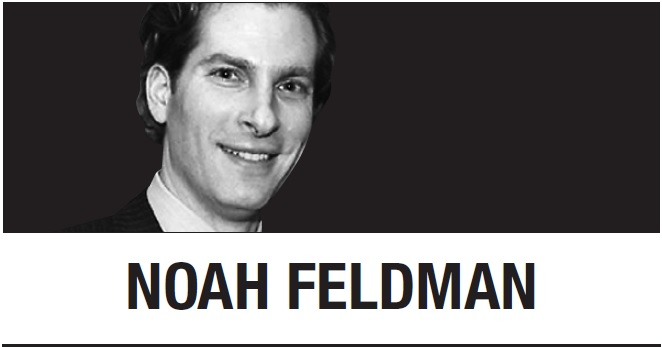
The new bipartisan bill to limit kids’ access to social media will no doubt appeal to many parents. The trouble is that, under existing First Amendment doctrine, the proposed law is almost certainly unconstitutional. For the Supreme Court to uphold it would require it to repudiate a 2011 precedent, Brown v. Entertainment Merchants Association, which struck down a California ban on selling or renting violent video games to minors.
The proposed legislation, named the Protecting Kids on Social Media Act, has three major components. It bars kids under 13 from having their own social media accounts or interacting with other users on social media platforms, although they would be allowed to passively look at social media sources. The bill requires the platforms to get parental consent before teens between 13 and 18 could create accounts. And it prohibits “the use of algorithmic recommendation systems on individuals” under 18.
The first two parts of the bill run headlong into well-established constitutional law. The third, about algorithmic recommendation, is less obviously unconstitutional; but on close examination, it, too, probably fails First Amendment scrutiny.
The 2011 opinion was written by the late Justice Antonin Scalia. In it, the Supreme Court affirmed that kids have First Amendment free-speech rights. It applied strict scrutiny to the video game law. To survive strict scrutiny, a law must serve a compelling government interest and be narrowly tailored to achieving that interest. Put another way, the government must’ve adopted the least restrictive means to achieve its compelling interest.
Young people’s free-speech interests in participating in social media are greater than in playing video games. Today, social media is where public discourse lives. Back in 2017, the Supreme Court put it this way: “While in the past there may have been difficulty in identifying the most important places (in a spatial sense) for the exchange of views, today the answer is clear. It is cyberspace -- the vast democratic forums of the Internet in general, and social media in particular.”
To overcome this free-speech interest, the government has to prove that it has a compelling interest in protecting those under 13 from social media interaction and those under 18 from having social media accounts without parental consent.
To be sure, there is a growing body of scientific literature that associates social media use with genuine, serious harm to kids’ mental health. But the research would have to identify what sort of content is causing the harm and target that. If kids are using social media at least in part in ways that do not cause them harm, then the law is too broad.
As for the parental consent requirement, it, too, is overly broad. In the 2011 case, the California violent video games law allowed an exception for parental consent. Scalia wrote:
"Not all of the children who are forbidden to purchase violent video games on their own have parents who care whether they purchase violent video games. While some of the legislation’s effect may indeed be in support of what some parents of the restricted children actually want, its entire effect is only in support of what the State thinks parents ought to want. This is not the narrow tailoring to “assisting parents” that restriction of First Amendment rights requires."
Thus, the consent provision is unconstitutional from the get-go.
That leaves the algorithmic recommendation component. Users may well not have a constitutional right to content tailored to them based on their behavior. But the platforms likely do have a constitutional free-speech right to decide what content to show their users -- including minors.
The precise rights of the platforms when recommending content are currently before the Supreme Court and may be clarified by the end of its term in June, so it is too soon to be absolutely sure. But if the court treats recommendations as part of the platforms’ constitutional right to curate content, that would render this part of the law unconstitutional.
Think of it this way: if platforms have the right to show recommended content to adult users, they are going to have the same right to show recommended content to minors unless the recommendation ban can be shown to be narrowly tailored to the compelling interest of protecting kids aged 13-18.
Nothing I’ve written here should be construed to defend the platforms against charges of harm, nor to preclude creative ways to protect kids. I’m telling you what current First Amendment doctrine says.
Of course, these justices have shown themselves willing to toss out precedent when they wish. If they want to change free speech doctrine, they can. But that’s up to the Supreme Court -- not Congress.
Noah Feldman
Noah Feldman is a Bloomberg Opinion columnist. -- Ed.
(Tribune Content Agency)
-
Articles by Korea Herald




![[KH Explains] No more 'Michael' at Kakao Games](http://res.heraldm.com/phpwas/restmb_idxmake.php?idx=644&simg=/content/image/2024/04/28/20240428050183_0.jpg&u=20240428180321)


![[Grace Kao] Hybe vs. Ador: Inspiration, imitation and plagiarism](http://res.heraldm.com/phpwas/restmb_idxmake.php?idx=644&simg=/content/image/2024/04/28/20240428050220_0.jpg&u=)











![[Herald Interview] Xdinary Heroes shoot for the next level with 'Troubleshooting'](http://res.heraldm.com/phpwas/restmb_idxmake.php?idx=642&simg=/content/image/2024/04/29/20240429050745_0.jpg&u=)